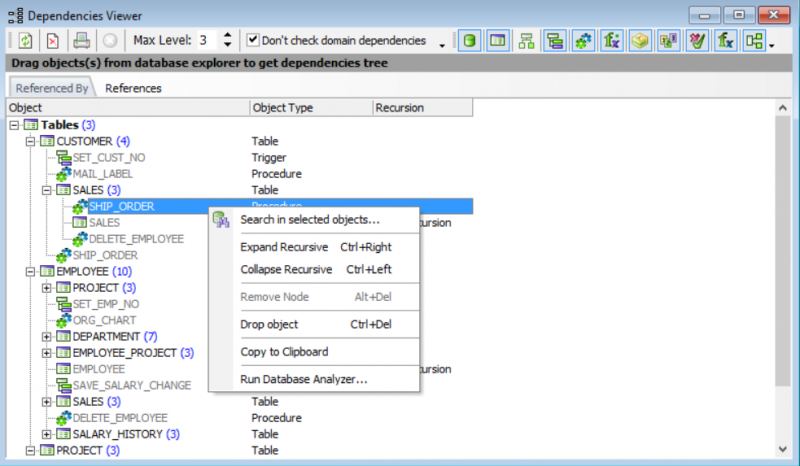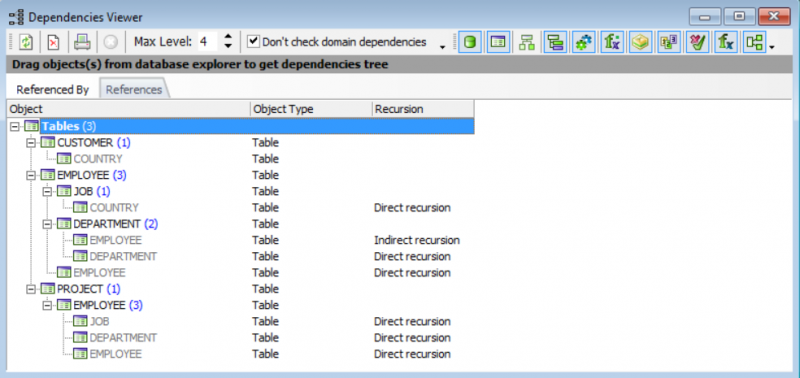meta data for this page
Dependencies Viewer
The IBExpert Dependencies Viewer is an ideal tool for ascertaining any dependencies upon an object or an object's dependency upon other objects (even index dependencies) - particularly important before changing data types or deleting objects!
It can be found in the IBExpert Tools menu. Database objects can be simply moved from the DB Explorer into the Viewer using drag 'n' drop.
It is also possible to run the SP/Trigger/View Analyzer for selected objects, using the dependencies tree context-sensitive menu item, Database Analyzer.
The Referenced By page displays which objects reference the selected object, i.e. the higher-ranking objects (in the above illustration EMPLOYEE) are referenced by the subordinate objects (in the above example: DEPARTMENT, PROJECT, EMPLOYEE_PROJECT, SALARY_HISTORY, EMPLOYEE (references itself = Direct Recursion), SET_EMP_NO and SALES).
The References page:
shows which objects are used by the selected object. In the above example, this includes, the DEPARTMENT, JOB and EMPLOYEE tables.
It is possible to specify whether domain dependencies should be checked or not, by simply checking the Don't check domain dependencies box in the toolbar. As it is possible for domains to reference other domains, and each table field is based either on a user-defined or system domain, this may slow work with the Dependencies Viewer if it is not checked.
Further object display criteria are offered by the icons in the toolbar (please refer to the Dependencies Viewer toolbar for details).
- Direct recursion indicates that an object references itself.
- Indirect recursion indicates that an object references itself indirectly via one or more other objects, for example EMPLOYEE references itself indirectly via DEPARTMENT (each employee belongs to a department; each department has a manager, who is an employee).
Double-clicking on any of the objects in the Viewer opens the respective object editor.

